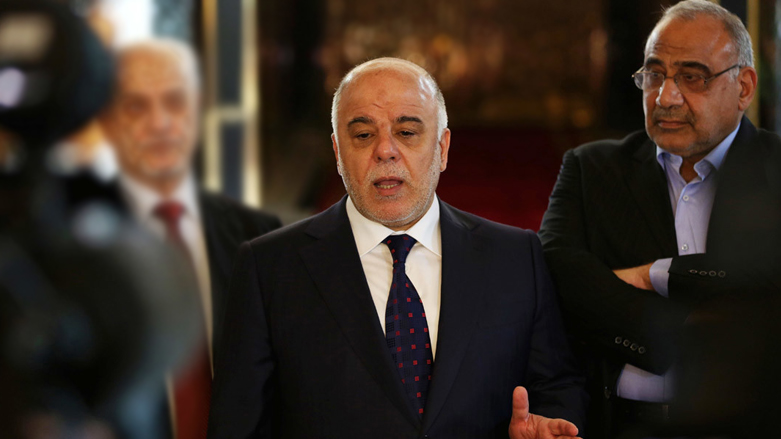Iraqi PM will concede to Abdul Mahdi if backed by top cleric: Source

ERBIL (Kurdistan 24) – According to a member of his political coalition, Iraqi Prime Minister Haidar al-Abadi said on Friday that he would support veteran politician Adil Abdul Mahdi to succeed him if the decision is backed by the nation's highest-ranking Shia cleric, Grand Ayatollah Ali al-Sistani.
The comments were part of a statement by Abadi published by a source in his al-Nasr (Victory) Coalition, but have been denied in the Iraqi media by at least one other al-Nasr member.
“Some political circles and media outlets affiliated with the Marja'a (Sistani) attribute words to the religious authority that its candidate for the premiership of the next government is Mr. Adil Abdul Mahdi,” Abadi purportedly began.
With apparent suspicions about the validity of the reports, Abadi continued, “We know that the wise Marja’a does not go into details and [give] names [for political positions], but if this is the Marja’a's pick, I will announce my support for him.”
Abdul Mahdi, an economist who has previously held the posts of Iraqi Oil Minister and Finance Minister, is considered to be one of the picks for prime minister of cleric Muqtada al-Sadr, whose political coalition took first place in May's parliamentary elections.
Sistani holds no official authority in the government but has considerable influence among millions in Iraq's Shia Muslim majority.
On September 10, Sistani called for a changing of the guard in Baghdad, pointing to the population’s disillusionment with politicians and their inability to properly steer the country. A statement published on the cleric’s official website read that his movement “does not support a prime minister that is chosen from politicians that were in power in the past years.”
Earlier, in a July sermon, Sistani's representative stressed “the great responsibility” the citizenry places on the country’s politicians, the “absolute necessity” for reform, and the need for incumbent prime minister Haider al-Abadi to answer the calls of protesters then filling the streets of central and southern Iraqi cities, most notably Basra.
“The current government must find which of the citizens’ demands can be taken care of promptly to alleviate their suffering and meet their needs,” he declared.
Although Abadi recently stated he would not run for a second term in deference to Sistani, his critics believe he still aspires to win a second term.
In 2014, Sistani intervened similarly by issuing a statement forbidding then Prime Minister Nouri al-Maliki from serving a third term. This came after earlier protests, also in the central and southern provinces, and the subsequent invasion of the Islamic State (IS).
Instead of Maliki, Abadi was chosen by political leaders to head the nation. Both Maliki and Abadi belong to the Dawa party.
Maliki has recently said he would not run for prime minister, but there are indications that Abadi is determined to stay for a second term amid perceived US support.
Editing by John J. Catherine
